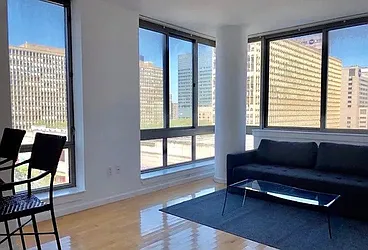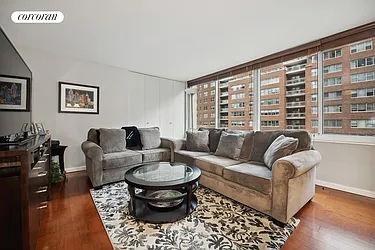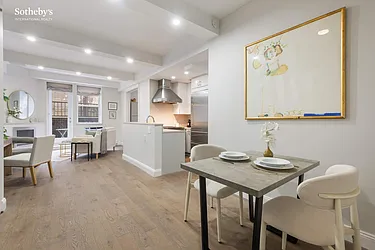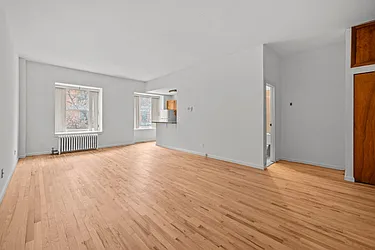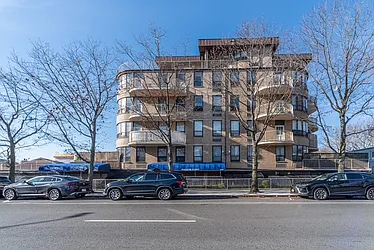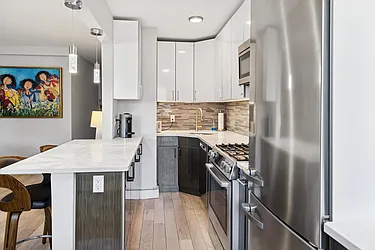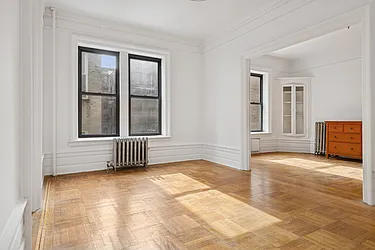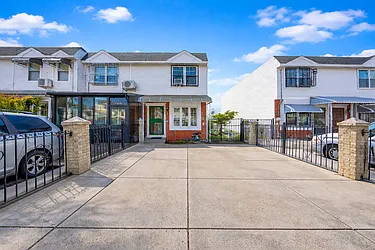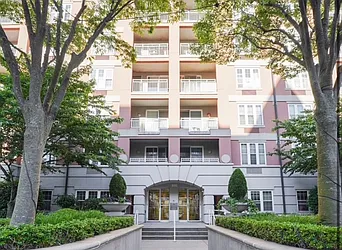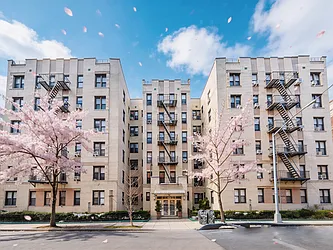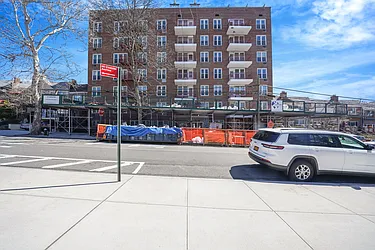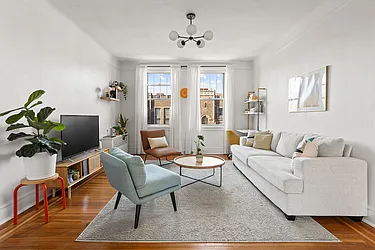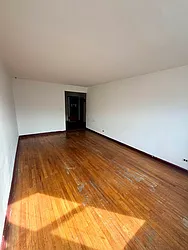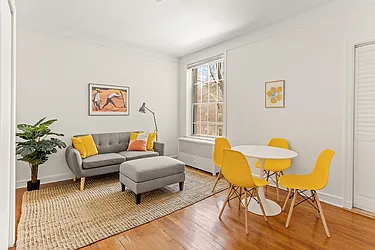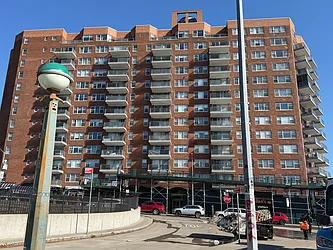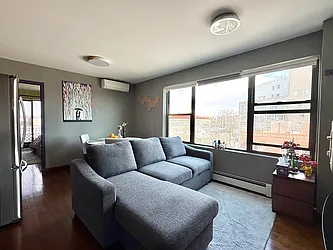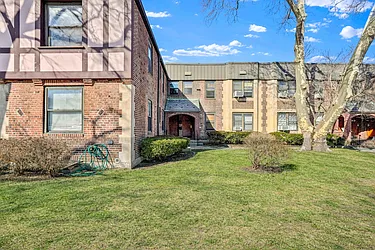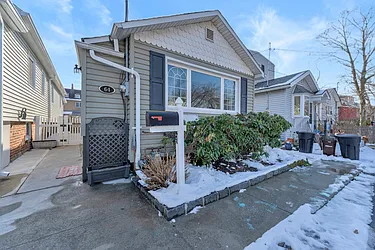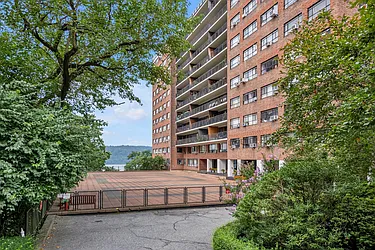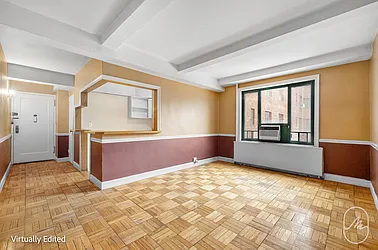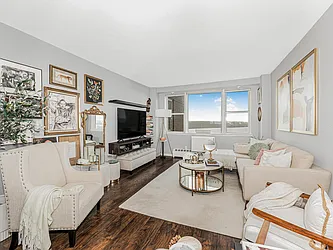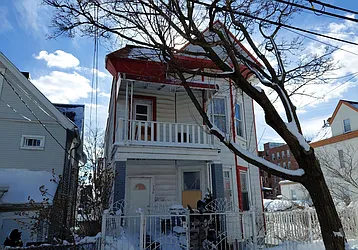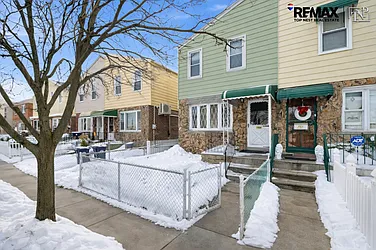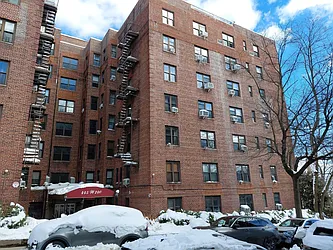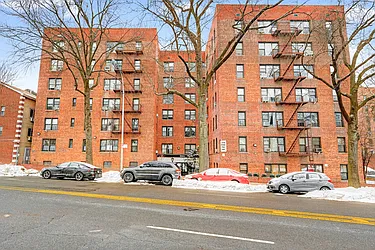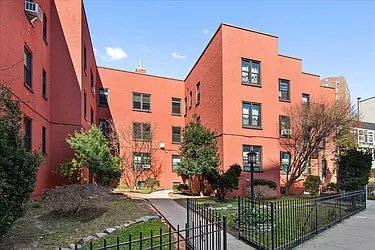Buying Your First Home in NYC
Buying a home in NYC is complicated, but rewarding. If you're a first-time home buyer, or even a returning buyer who needs a refresher, this guide will provide you with tips and strategies for your home-buying journey.
A few of the topics covered in this guide include: how to find your dream home, how to find a buyer's agent, how to prepare for a co-op board interview (and what even is a co-op vs. a condo?), information about home inspections, home loans and mortgages, and much more! We hope these articles will help you make educated decisions and feel a little more confident as you begin this journey — whether you're a first-time home buyer or a real estate veteran. Happy home shopping!Condo or co-op? That is the question. So you’ve decided to take the plunge and — gasp! — bid farewell to renting forever. Or maybe you’re a seasoned buyer looking to purchase your next place. Either way, buying is a big decision. In your search, you’ll notice most NYC apartments fit into two major building types: co-ops and condos. As you balance the pros and cons of each option, you might wonder: why are condos more expensive than co-ops? And what is a co-op exactly? Before you go crazy figuring it all out, read our comprehensive explainer on co-ops vs. condos in NYC.
Manhattan Homes Under $800K on StreetEasy Article continues below
What’s the Difference Between a Co-op and a Condo?
Co-ops are a unique part of the New York City real estate landscape. In fact, when you buy a co-op, you’re not buying real estate in the traditional sense. You’re purchasing shares of a cooperative, or “co-op,” and that co-op owns the building. The bigger your unit, the more shares in the co-op you own. You’ll get what’s called a proprietary lease, which lays out the relationship between the co-op and you, the shareholder.
A condo, on the other hand, is a private residence in which you own the unit itself, making it true real estate. Not only do condo residents own their individual apartments, they also jointly own common areas that make up the rest of the building, like the hallways, elevators, and any other shared spaces. You’ll receive a deed, which is a record of ownership.
“You have a little bit more control and a little bit more flexibility as an owner of a condo than when you purchase a co-op,” explains agent Steven Irizarry of SERHANT.
Price points, approval processes, down payments, homeowner restrictions, and financial requirements make up the rest of the key differences. But none of these differences mean that one is inherently “better” than the other. That’s for you to decide, based on your needs.
If you’re still confused, you’re not alone. Watch our thorough co-op vs. condo explainer from StreetEasy Home School, our educational video series, below. And for even more guidance, reach out to our Concierge who can answer all of your NYC buying questions and match you with a StreetEasy Expert buyer’s agent.
Are Condos More Expensive Than Co-ops?
As you peruse your buying options, you’ll probably notice that condos tend to command higher prices than co-ops — even when they’re on the very same block.
So why are condos more expensive than co-ops? It’s a combination of factors. First of all, as mentioned before, condos are true real estate while co-ops are shares of a building. Additionally, condos are generally newer and have more amenities than co-ops. They can be attractive to overseas buyers, many of whom come with deep pockets. But the price differential might not be as stark as the sales numbers suggest. On average, most condos are larger than most co-ops in the same bedroom category. When you factor in that additional square footage, condos cost only about 10% more than their co-op counterparts.
Pro tip: You can use the StreetEasy Data Dashboard to find the latest median asking prices for condos and co-ops in NYC, and filter by borough or neighborhood.
That said, maintenance fees (known as common charges for condos) are another cost to be aware of as you decide between property types — and they tend to be higher in co-ops. In both condos and co-ops, these fees cover building upkeep, some utilities, and building staff salaries. But co-op maintenance fees also have to cover building insurance, an underlying mortgage, property taxes, and any other fees incurred by the cooperative, making them cost more. Condo owners pay property taxes separately; they’re not included in the monthly common charges.
There Are More Co-ops Than Condos in NYC
The Big Apple contains far more co-ops than condos. In fact, city estimates suggest there are twice as many co-ops than condos in NYC. The discrepancy can largely be attributed to the so-called co-op conversion boom of the 1980s, when developers converted an enormous number of rental buildings into co-ops.
Among listings on StreetEasy, however, you’ll probably notice a more even split between co-ops and condos at any given time. So while there may be more co-ops in existence, condos are just as readily available to potential buyers like you.
Brooklyn Homes Under $800K on StreetEasy Article continues below
What About Subletting Policies?
Most co-ops have strict rules around subletting, including minimum time periods that an owner must live in an apartment before they can rent it out. And some co-ops don’t allow subletting, period. When subletting is permitted, co-ops usually have limits on how long an owner can rent out their apartment within a five-year time frame.
“There’s more flexibility in a condominium,” explains Joan Billick of Douglas Elliman. Usually, condos have one-year minimum rental policies, but many have more flexible policies in place. In addition, many investors purchase condos and quickly turn them around to put on the market as rentals.
Many Home Buyers Prefer New Construction
Buyers are often willing to pay a premium for new developments with fancy features. With fresh luxury towers coming on the market every quarter, the price per square foot keeps getting pushed upward. Since condos are generally newer, they’re often pricier than co-ops of similar size. Even when real estate values increase across both property types, co-op values generally don’t surpass those of condos. However, there are always exceptions to these patterns — and just because a home is newer doesn’t necessarily mean it’s better.
Condos Have More Amenities
For many homebuyers, a building’s amenities are becoming just as important as the unit itself. “The newer condominiums built in the past 10 years are focused on amenities,” says Billick. “The newer the building, the more extensive.”
Luxury buyers are not only looking for fitness centers and roof decks these days, but also steam rooms, basketball courts, pet spas, and beyond. Billick points to buildings like 220 Central Park South — which boasts a residents-only Jean-Georges restaurant — as an example. New Yorkers view many amenities as must-haves, and condo builders are listening.
Co-ops can certainly have the same “white glove” touch as condos — after all, Park Avenue is known for some of the most exclusive and luxurious co-op buildings in all of Manhattan — but they generally lag behind newer condo buildings on amenities, a selling point for condos in the co-op vs. condo face-off. Billick explains that many co-ops, space permitting, have adapted to changing demands by adding amenities like gyms, private storage units, and roof decks. But many simply weren’t built with amenities in mind, so adding them is near-impossible due to space restrictions.
Queens Homes Under $800K on StreetEasy Article continues below
Approval Process for Co-ops vs. Condos
Let’s say you find the perfect apartment, you figure out your finances, and you decide to make an offer. If that dream home is a co-op, you might need to slow down, and maybe even hit the brakes entirely. That’s because co-ops impose greater restrictions on transactions, and potential purchasers have to be approved by the co-op’s board — a process that can be notoriously difficult.
Potential buyers not only submit an application, but are also interviewed by the co-op board, which can reject a buyer for any number of reasons. The process has been historically criticized for its lack of transparency and can take a matter of weeks, or in some cases several months. Co-op boards can also determine the amount of financing a buyer can use in their purchase.
Condos, on the other hand, have a much more simple approval process. When you submit an application for purchase, the condo board typically has the right to purchase the unit from the seller at the same price instead of selling it to you. But in most instances, the board will waive this right and approve your purchase. All in all, it’s a lot simpler than a co-op transaction.
Do Co-ops and Condos Have Different Down Payment Requirements?
Every building has different requirements, but a good rule of thumb is that co-ops generally require a down payment of at least 20%, and expect you to have a significant chunk of money left over. In fact, some co-ops require 40% down or more, often to restrict purchasers to a certain buying power. Although it’s rare, Billick notes that “there are certain buildings that don’t allow any financing.”
Condos usually require a 20% down payment, but it’s less of an industry standard than it is in the co-op market. In some cases, you can even find condo buildings that will accept 10% down.
Beyond the actual cash you need to put down, you’ll also need to consider your debt-to-Income ratio, or DTI, which is calculated when you apply for a loan. To get this figure, divide your monthly debt payments by your monthly gross income. Many co-ops boards won’t accept applicants past a certain threshold, with the average NYC requirement hovering around 28%.
Have more questions? Learn more about how much to put down on an NYC apartment.
Bronx Homes Under $750K on StreetEasy Article continues below
Do Condos Have Higher Closing Costs?
Yes indeed. If you’re purchasing a condo, you should expect higher closing costs. Since a co-op is considered shares of a building and a condo is real estate, there are several additional fees to consider, including title insurance and mortgage taxes.
Both condo and co-op buyers will have to pay attorney fees, and a mansion tax if the apartment is purchased for over one million dollars. A good rule of thumb is to be prepared to spend 2-5% of the purchase price on closing costs, with condo buyers usually approaching the higher end of that range.
Co-op vs. Condo: Which Is a Better Value?
So, which is better: co-op or condo? It ultimately comes down to personal preference. You have to factor in what you’re looking for and take all of the differences above into consideration.
Co-ops are typically seen as the most common entry point for first-time buyers. If your top priority is a lower price point and you can afford the potentially higher down payment, a co-op might be the right choice for you. Additionally, they’re great for buyers who are planning to live in their homes full-time instead of renting them out. But if you want a newer building with more amenities, or just want to move in faster, you may want to consider a condo. Condos also provide more flexibility for subletting or selling your home if your circumstances change.
Need more help understanding or deciding? Contact the StreetEasy Concierge below and have them match you with a StreetEasy Expert buyer’s agent, who’ll help you choose which type of property is right for you.
Contact our complimentary StreetEasy Concierge to learn more about the NYC buying process and get connected with an Expert buyer’s agent.
StreetEasy is an assumed name of Zillow, Inc. which has a real estate brokerage license in all 50 states and D.C. See real estate licenses. StreetEasy Concierge team members are real estate licensees, however they are not your agents or providing real estate brokerage services on your behalf. StreetEasy does not intend to interfere with any agency agreement you may have with a real estate professional or solicit your business if you are already under contract to purchase or sell property.
This content is not intended to provide legal, financial, or real estate advice. It is for information purposes only, and any links provided are for the users’ convenience. Please seek the services of a legal, accounting, or real estate professional before any real estate transaction.




